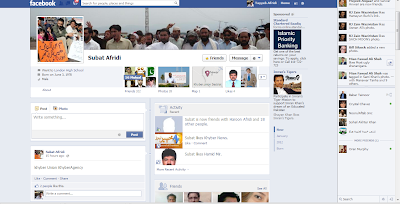’دا دے ٹی این این خبرونہ دی۔ زہ یم ناہید جہانگیر (یہ ٹی این این کی خبریں ہیں، میں ہوں ناہید جہانگیر۔۔۔‘
پاکستان کے قبائلی علاقوں میں بیٹھ کر پاکستان کے غیرسرکاری اور نجی نشریاتی ادارے کی جانب سے تیار کی گئی ایسی خبریں یقیناً اس خطے کے لوگوں کے لیے اچھی تبدیلی ہے۔ پاکستان کے قبائلی علاقوں اور خیبر پختونخوا میں ایک دہائی سے زائد عرصے سے جنگ صرف بندوق کے زور پر نہیں لڑی جا رہی بلکہ معلومات کی فراہمی یا عدم فراہمی کے ذریعے بھی مدد لی جا رہی ہے۔
قبائلی علاقوں میں آزاد میڈیا آج بھی ایک خواب ہے جس کی تعبیر حاصل کرنے کی کوشش پشاور کی ایک نجی تنظیم نے کی ہے۔
اب تک اس علاقے کے لاکھوں کی آبادی کو معلومات کے حصول کے لیے یا تو سرکاری ریڈیو یا پھر غیرملکی نشریاتی اداروں پر انحصار کرنا پڑتا تھا۔ جن علاقوں میں شدت پسندی کا مسئلہ ہے، وہیں معلومات سے متعلق خلا بھی موجود ہے۔
بلوچستان اور قبائلی علاقوں میں معلومات کو پاکستان کے مرکزی دھارے کے میڈیا نے آج تک نظر انداز کیا ہے۔ ان کی ضروریات کیا ہیں اور کیسے پوری کی جا سکتی ہیں اس پر کم ہی دھیان دیا گیا ہے۔
مقامی میڈیا سرے سے موجود ہی نہیں۔ شدت پسندی سے متاثرہ علاقوں میں مقامی میڈیا کا پنپنا ابھی بھی مشکل ہے۔ ٹرائیبل نیوز نیٹ ورک نامی ایک غیرسرکاری نجی تنظیم نے قبائلی علاقوں اور خیبر پختونخوا میں ریڈیو کے لیے یہ انوکھی سروس شروع کی ہے۔
پشاور میں قائم ٹرائبل نیوز نیٹ ورک ان علاقوں میں نجی ایف ایم ریڈیو سٹیشنوں کو پشتو زبان میں دن میں دو مرتبہ مفت خبریں مہیا کرتا ہے۔ ٹی این این کے روح رواں اور بانی طیب آفریدی کہتے ہیں قبائلی لوگوں میں بھی حالات و واقعات سے اپنے آپ کو باخبر رکھنے کا اتنا ہی شوق ہے جتنا کسی اور خطے کے انسان کا ہوگا۔
’انھیں کسی آزاد مقامی نیوز ریڈیو چینل کی کمی کا سامنا ہے جو ان کو متوازن اور تنقیدی پہلو کو سامنے رکھتے ہوئے خبریں مہیا کر سکے۔ سرکاری ریڈیو کے علاوہ اب فوج کے تعلقات عامہ کے ادارے آئی ایس پی آر اور فرنٹیئر کور کے ریڈیو آئے ہیں لیکن وہ تفریح پر زیادہ توجہ دیتے ہیں۔ ٹی این این بنانے کا بنیادی مقصد یہی تھا کہ اس کمی کو انھی کے علاقے سے پورا کیا جا سکے۔‘
یہ ادارہ فی الوقت پانچ ایف ایم چینلوں کو یہ بلٹین مہیا کر رہا ہے۔ نجی ایف ایم سٹیشنوں کو خبریں چلانے پر ابتدا میں آمادہ کرنا طیب آفریدی کے لیے مشکل مرحلہ تھا۔ وہ خود بھی بیرونی امداد سے یہ منصوبہ چلا رہے ہیں۔
’ہمارے پاس اتنے پیسے نہیں تھے کہ ان کو دیتے یا ان کا ایئر ٹائم خرید سکتے۔ تو ہم نے بتایا کہ آپ اگر خبریں خود تیار کریں گے تو وسائل چاہیے ہوں گے، ہم آپ کو ان خبروں کے بدلے ریڈیو کی تربیت دیں گے جس پر وہ تیار ہو گئے۔‘
اس خبر رساں ادارے کے قیام کا بنیادی مقصد قبائلی عوام کو تنقیدی خبریں فراہم کرنا ہے تاکہ وہ اپنے سماجی اور سیاسی موضوعات پر بہتر انداز میں بات کر سکیں۔
خیبر ایجنسی میں تہذیب نامی ریڈیو سٹیشن بھی خبریں نشر کرتا ہے۔
اس چینل کے ایاز رضا آفریدی سے یہ خبریں نشر کرنے کی وجہ جاننا چاہی: ’اس سے ہمارے سامعین کی تعداد بڑھی ہے اور ہمیں تیار خبریں مل جاتی ہیں۔ قبائلی علاقوں میں نہ تو کیبل ہے اور نہ ٹی وی، اخبار بھی دیر سے پہنچتا ہے۔ تو ہمارے لیے مارکٹنگ کی تربیت بھی بہت ضروری ہے۔‘
شدت پسندی سے متاثرہ علاقوں میں پاکستانی سکیورٹی ادارے غیر ملکی سٹیشنوں کو موقع نہیں دینا چاہتے۔ ان کا کہنا ہے کہ عسکری جنگ کے ساتھ ساتھ وہ نفسیاتی جنگ بھی لڑ رہے ہیں جس میں غیر ملکی اداروں کا کوئی کام نہیں۔
تاہم اس مقامی لوگوں کے لیے مقامی سٹیشن کے ذریعے مقامی خبروں کا امتزاج کیا رنگ دکھا رہا ہے۔ میں نے خیبر ایجنسی کے ہی چند باسیوں سے دریافت کیا تو ان میں سے اکثر نے موسم کا حال، شوبز نیوز اور زیادہ مقامی خبروں کا تقاضا کیا۔
اس منصوبے کے لیے غیرملکی امداد ہمیشہ کے لیے نہیں۔ لہٰذا طیب مستقبل کے بارے میں بھی سوچ رہے ہیں: ’ہم تین چار منصوبوں پر کام کر رہے ہیں۔ ان میں سے ایک اشتہاری کمپنیوں سے سپانسر حاصل کرنا، دوسرا اپنے پروڈکشن ہاؤس میں دیگر اداروں کے لیے خصوصی پرگرام تیار کرنا اور موبائل صارفین کو انتہائی کم رقم کے عوض یہی خبریں فراہم کرنا بھی شامل ہے۔‘
ایم ایم پارٹنرز کا ہمیشہ یہ موقف رہا ہے کہ وہ کسی کی خبریں کیوں چلائیں۔ تہذیب ریڈیو کے ایاز آفریدی کہتے ہیں اگر پیسے دینے پڑے خبروں کے لیے تو پھر اس وقت دیکھیں گے۔
وانا سے لے کر دیر تک سنے جانے والے اس انوکھے تجربے کے لیے مستقبل میں چیلنج بہت ہیں۔ دیکھنا یہ ہے کہ معاشی اور سرکاری دشواریوں کے بیچ میں یہ کیسے قبائلیوں کی ضرویات پوری کر پائے گا۔





.jpg)

.jpg)







.jpg)





